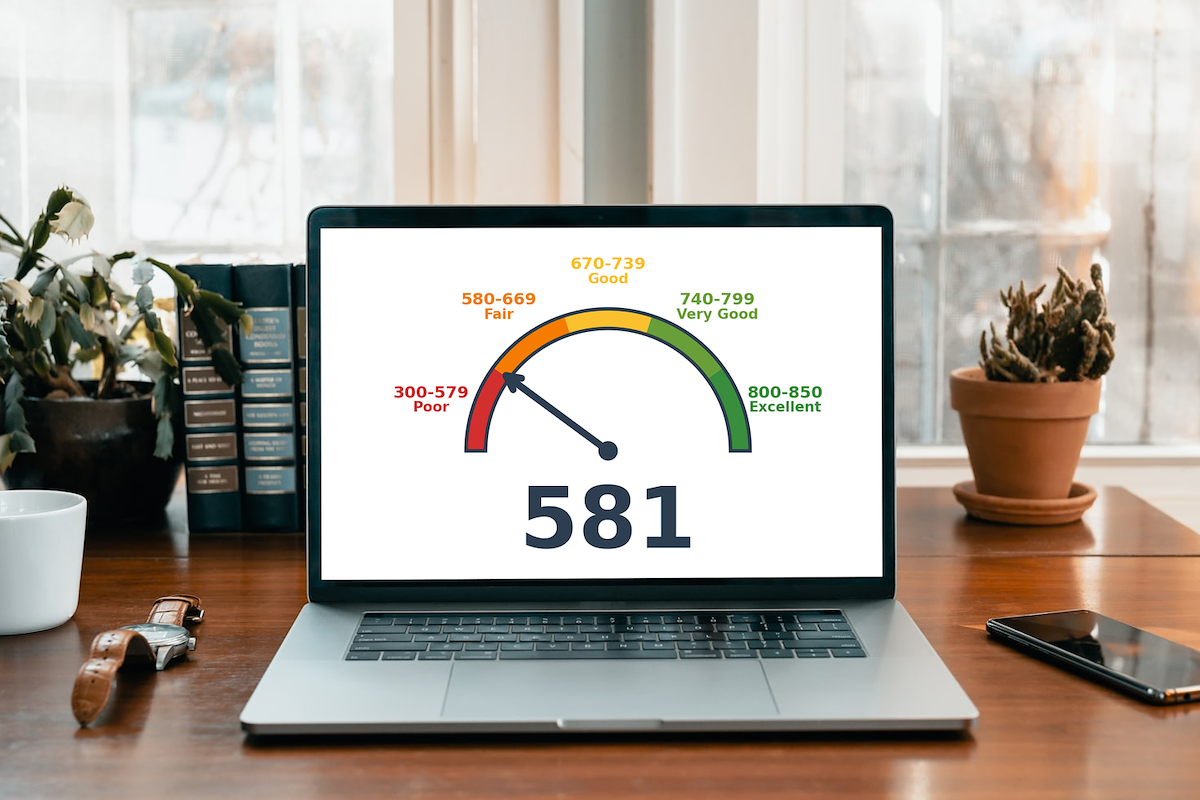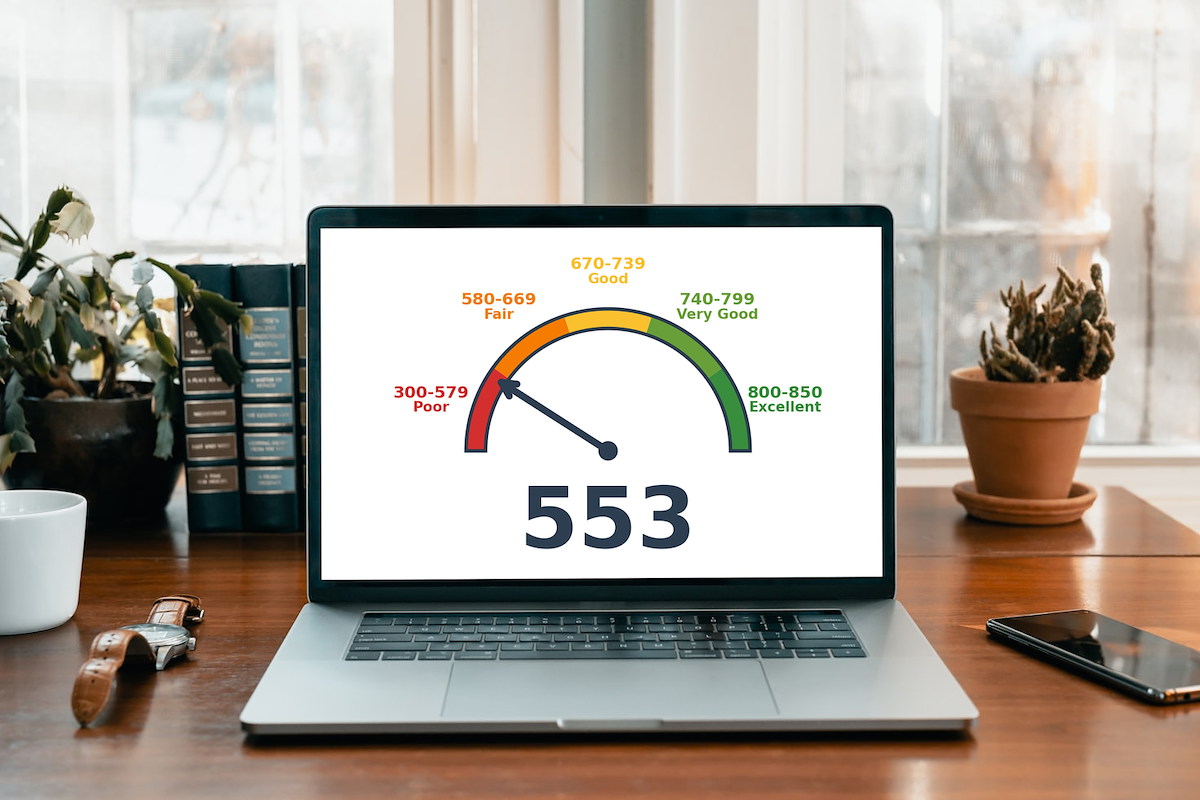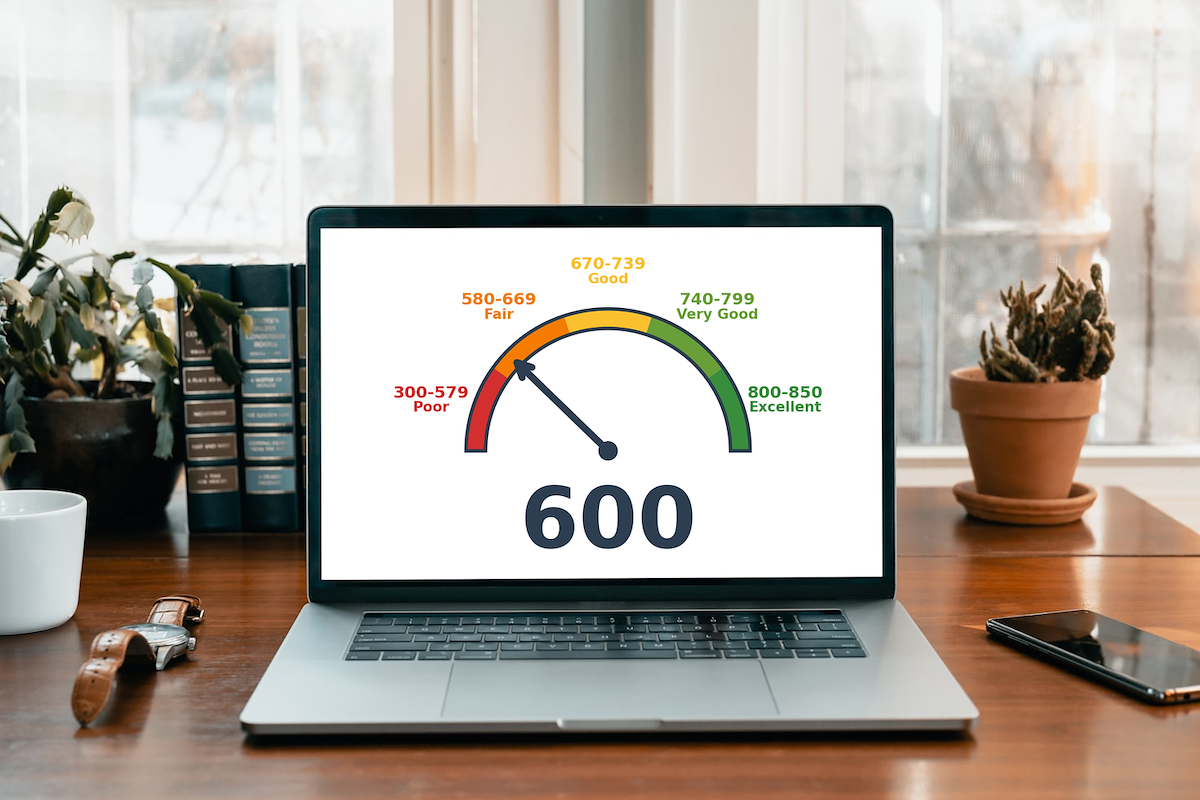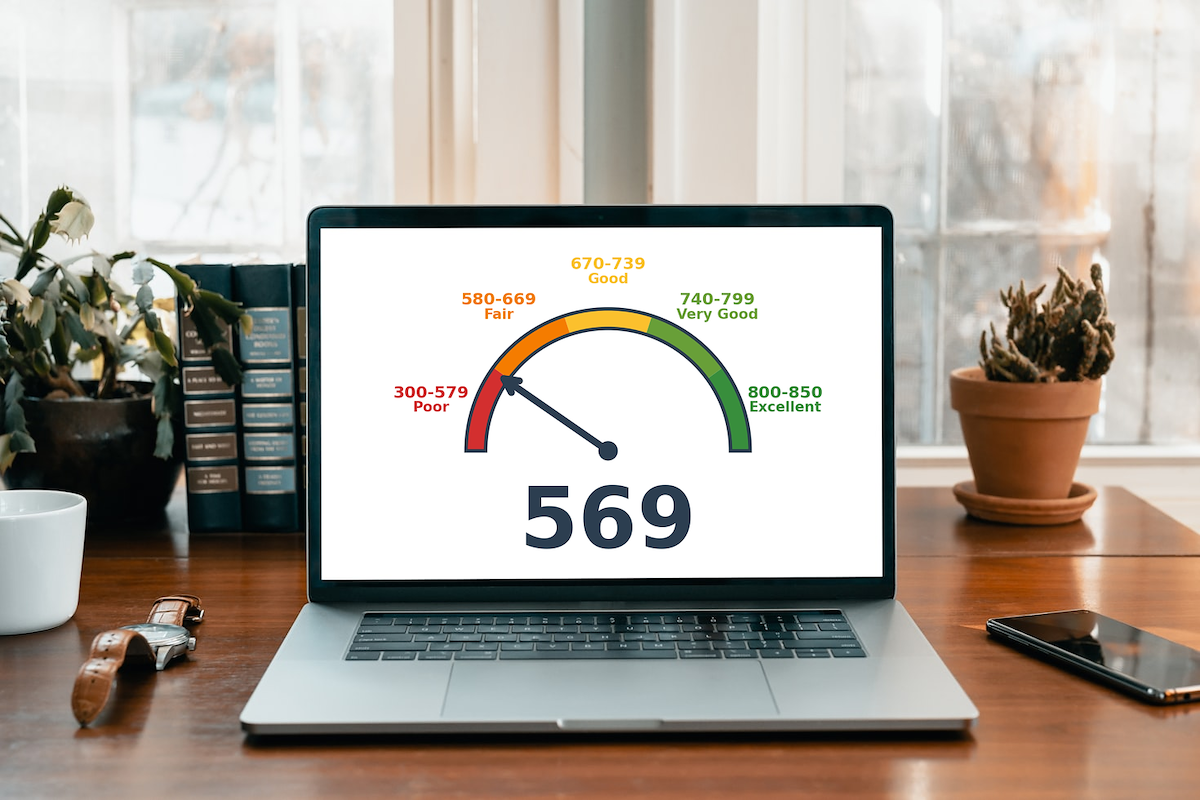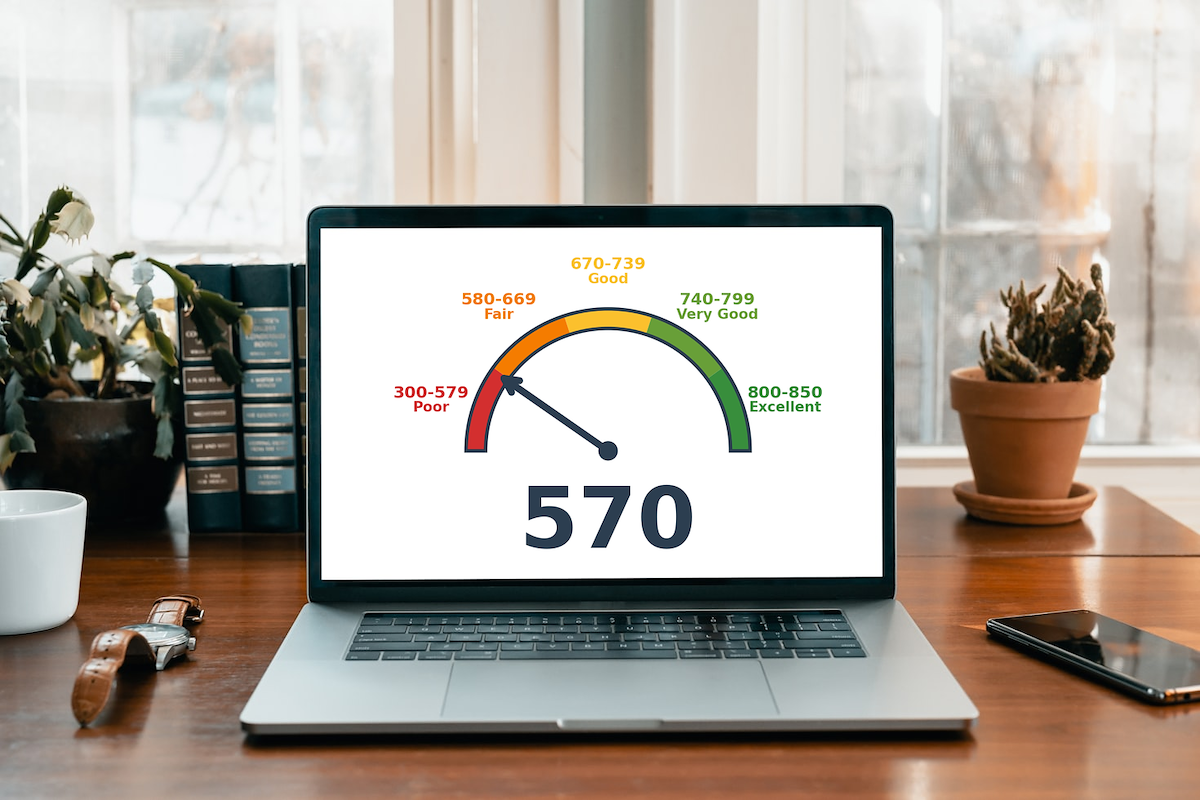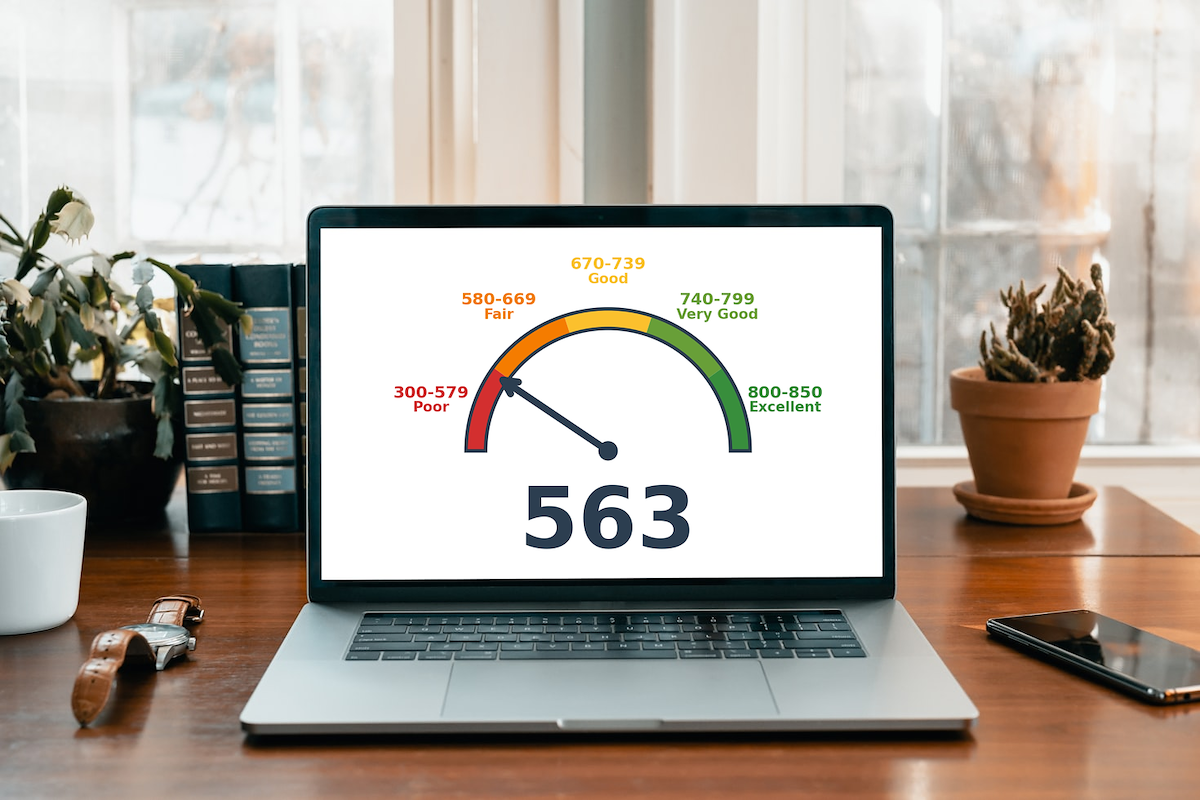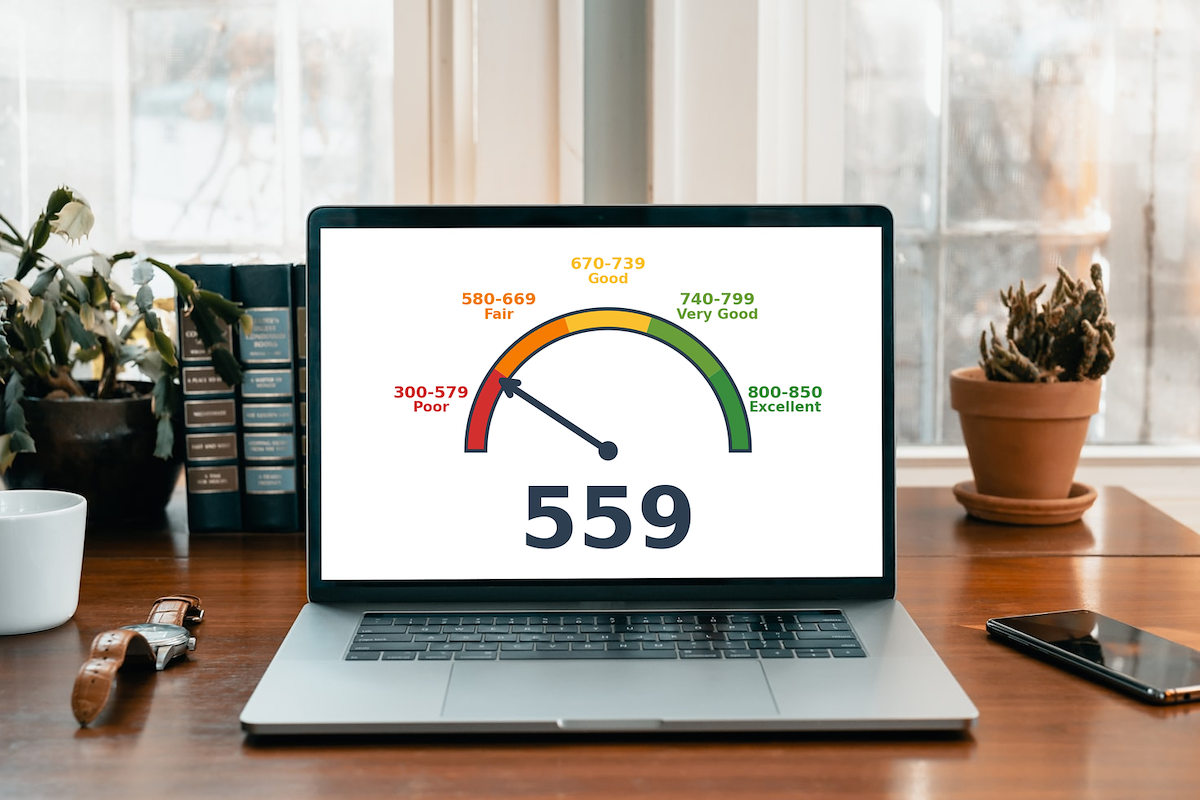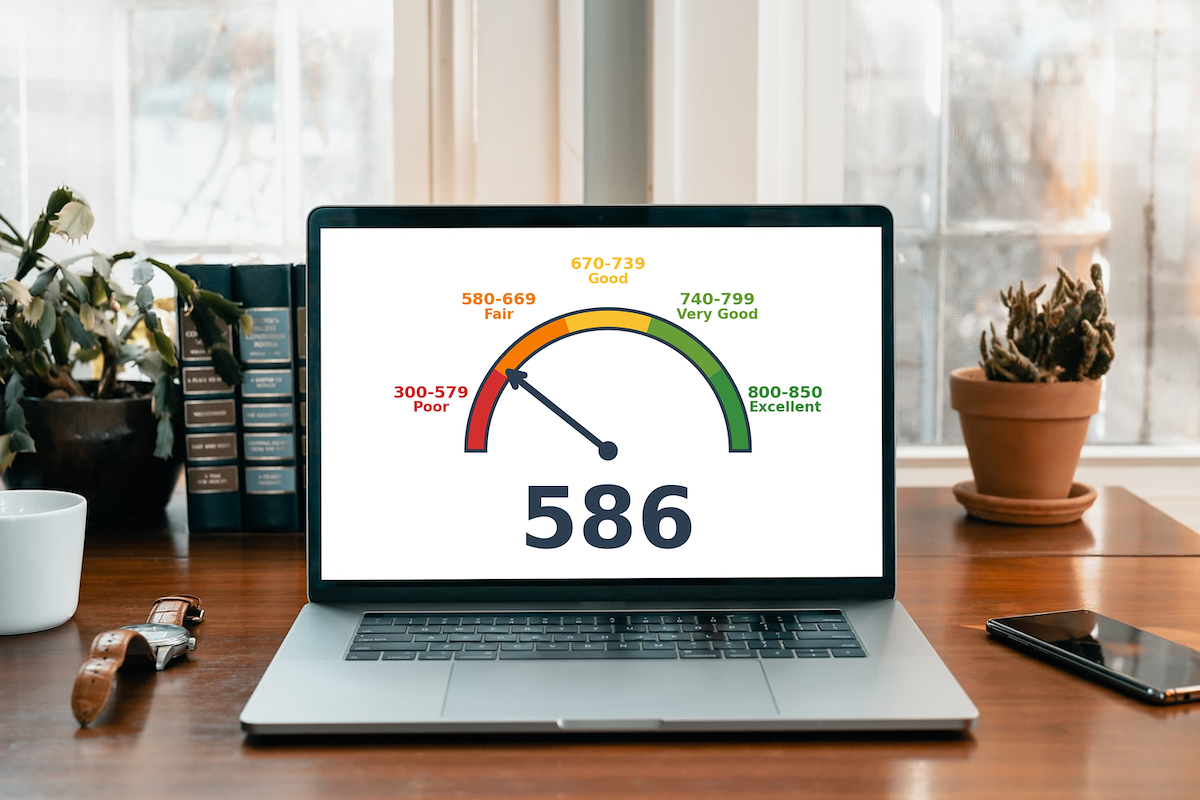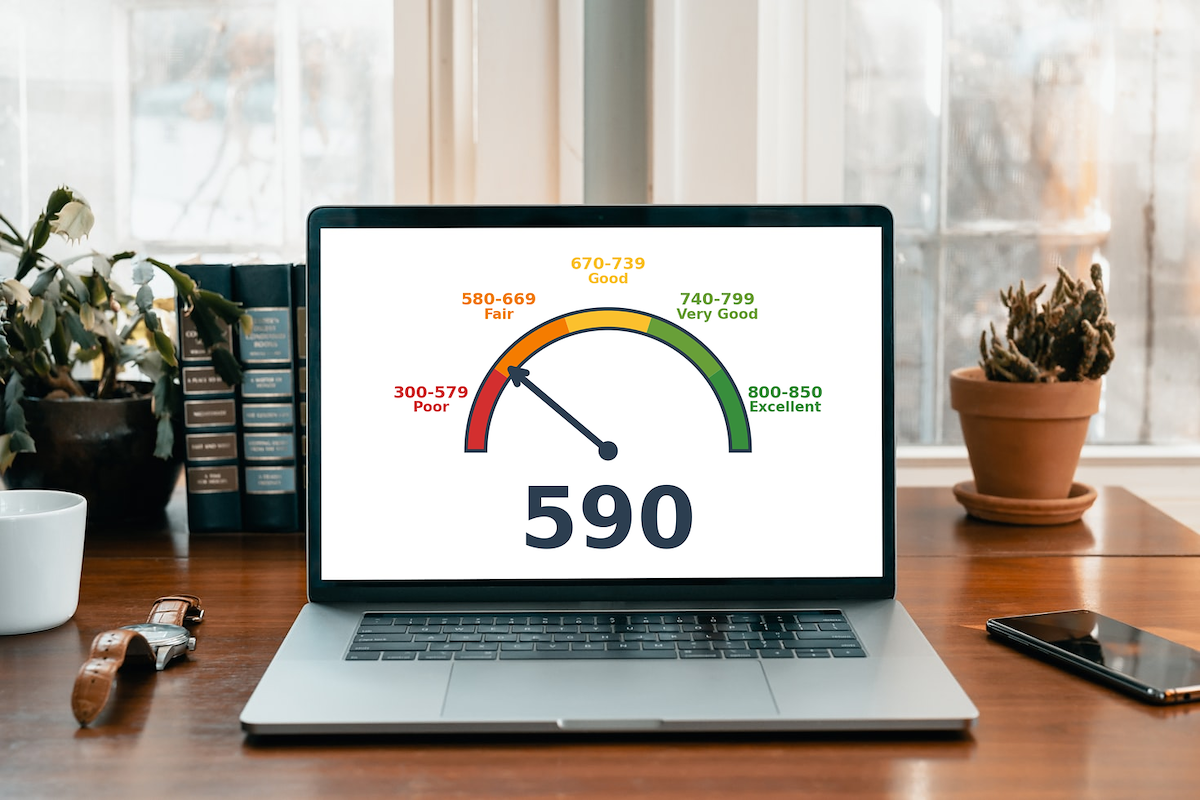
Kudos has partnered with CardRatings and Red Ventures for our coverage of credit card products. Kudos, CardRatings, and Red Ventures may receive a commission from card issuers. Kudos may receive commission from card issuers. Some of the card offers that appear on Kudos are from advertisers and may impact how and where card products appear on the site. Kudos tries to include as many card companies and offers as we are aware of, including offers from issuers that don't pay us, but we may not cover all card companies or all available card offers. You don't have to use our links, but we're grateful when you do!
595 Credit score: What You Need to Know in 2025
July 1, 2025

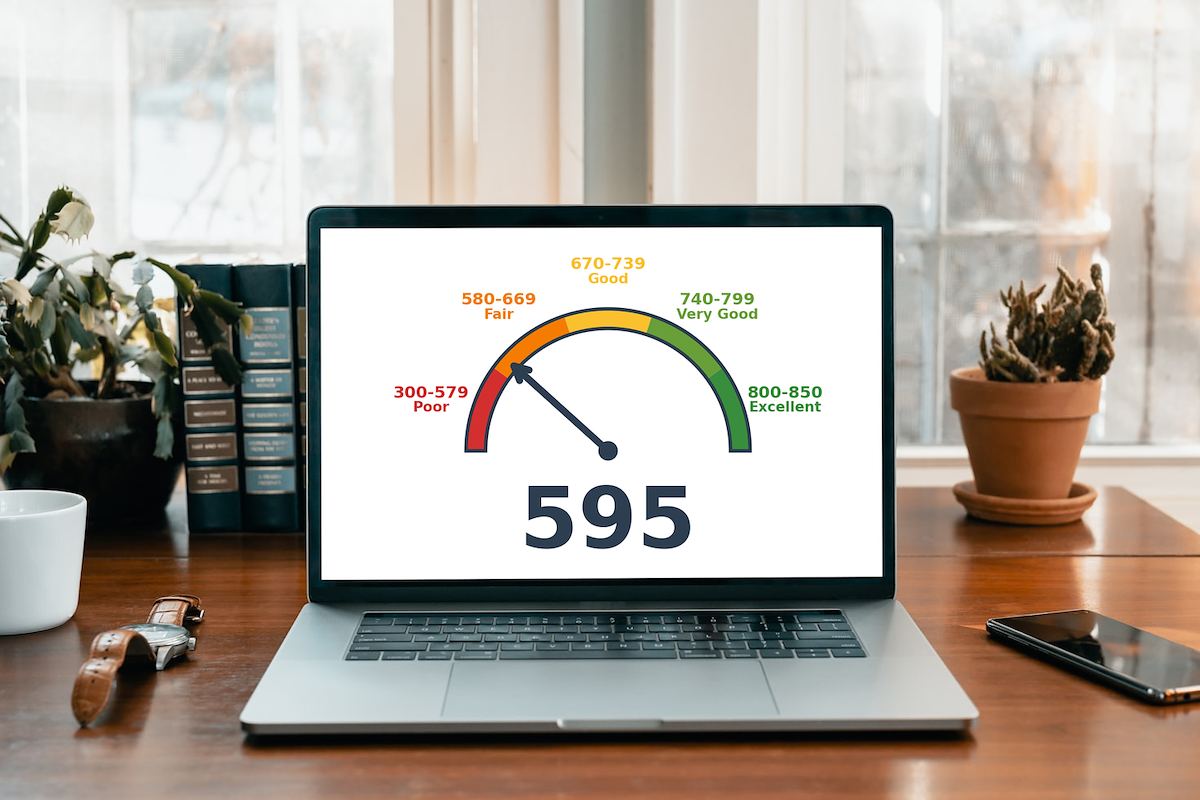
TL;DR
A 595 credit score offers a significant opportunity for growth and is a solid foundation to build upon. This score falls into the "Fair" credit range, positioning you to take clear steps toward improving your financial standing.
What Does a 595 Credit Score Mean?
A FICO score of 595 places you in the "fair" credit range, which typically spans from 580 to 669. While not considered "poor," this score is below the average for consumers in the United States. Lenders often view scores in this range as indicating a higher-than-average risk, which can influence their decisions when you apply for new credit.
Financially, a 595 credit score can translate to higher interest rates on mortgages, auto loans, and credit cards, making borrowing more expensive. You might also face challenges getting approved for new lines of credit or find yourself with less favorable terms. However, a fair credit score is a solid foundation, and improvement is well within reach over time.
Who Has a 595 Credit Score?
While age isn't a direct factor in credit score calculations, there is a clear trend of scores improving over time. According to 2023 data, the average credit scores vary significantly across different generations:
- Generation Z (ages 18-26): 680
- Millennials (ages 27-42): 690
- Generation X (ages 43-58): 709
- Baby Boomers (ages 59-77): 745
- Silent Generation (ages 78+): 760
Credit Cards With a 595 Credit Score
A credit score of 595 places you in the 'fair' credit range, which can be a mixed bag when applying for new credit cards. Lenders may view your application as higher risk, often resulting in less favorable terms like higher interest rates and lower credit limits if you are approved. While you might not qualify for premium rewards cards, there are still several options available, particularly those designed to help you build or rebuild your credit history.
To find the best card for your situation, Kudos offers personalized tools that sift through nearly 3,000 options based on your financial goals. These tools provide tailored recommendations and can even offer insights into how a new card might impact your credit, ensuring you make an informed choice.
Auto Loans and a 595 Credit Score
With a 595 credit score, you fall into the subprime lending category, which means you'll likely face higher interest rates and stricter loan terms. According to a 2025 rate analysis, while approval is possible, the overall cost of your auto loan will be significantly more expensive than for borrowers with better credit.
- Super-prime (781-850): 5.25% for new cars and 7.13% for used cars
- Prime (661-780): 6.87% for new cars and 9.36% for used cars
- Non-prime (601-660): 9.83% for new cars and 13.92% for used cars
- Subprime (501-600): 13.18% for new cars and 18.86% for used cars
- Deep subprime (300-500): 15.77% for new cars and 21.55% for used cars
Mortgages at a 595 Credit Score
With a 595 credit score, your options are limited but not zero. You likely won't qualify for a conventional loan, which typically requires a minimum score of 620. However, you are in the range for an FHA loan. FHA guidelines permit scores as low as 580 with a 3.5% down payment, making it your most accessible path to homeownership. While some VA or USDA lenders may consider your application, most prefer scores of 620 or higher.
A 595 score directly impacts your loan terms. You can expect to face higher interest rates compared to borrowers with good credit, and you will be required to pay FHA mortgage insurance. Your loan choices will be restricted primarily to government-backed programs, and lenders may scrutinize your finances more closely through stricter underwriting. On the plus side, you can still qualify for the FHA’s minimum 3.5% down payment.
What's in a Credit Score?
Figuring out what goes into your credit score can feel like trying to solve a complex puzzle, but it generally boils down to a handful of key elements. The most common factors include:
- Your history of making payments on time is the most significant factor.
- How much of your available credit you're currently using, known as your credit utilization ratio, plays a major role.
- The age of your credit accounts, including the average age and the age of your oldest account, is also considered.
- Lenders like to see that you can responsibly manage different types of credit, such as credit cards and loans.
- Opening several new credit accounts in a short period can be seen as a risk and may temporarily lower your score.
How to Improve Your 595 Credit Score
Your credit score plays a crucial role in your financial life, but a low number doesn't have to be permanent. With consistent effort and the right strategy, it is always possible to improve your creditworthiness using proven methods.
- Monitor your credit reports. Regularly checking your reports helps you find and dispute inaccuracies that could be unfairly lowering your score. Correcting these errors is one of the fastest ways to see a positive impact.
- Establish automatic bill payments. Your payment history is the largest factor in your credit score, so automating payments ensures you never miss a due date. This builds a positive track record and prevents the kind of late payments that damage a 595 score.
- Reduce your credit utilization ratio. Aim to keep your credit card balances below 30% of your total limit, as this is the second-most important factor in your score. Paying down your debt is a powerful way to give your score a significant and relatively quick boost.
- Become an authorized user. Being added to a trusted friend or family member's credit card account can add their positive payment history to your file. This can be an effective way to build credit, especially if your own credit history is thin.
While working on these steps, consider using a tool like Kudos to help you manage your cards and maximize rewards as you build your credit.

Supercharge Your Credit Cards
Experience smarter spending with Kudos and unlock more from your credit cards. Earn $20.00 when you sign up for Kudos with "GET20" and make an eligible Kudos Boost purchase.
Editorial Disclosure: Opinions expressed here are those of Kudos alone, not those of any bank, credit card issuer, hotel, airline, or other entity. This content has not been reviewed, approved or otherwise endorsed by any of the entities included within the post.


















